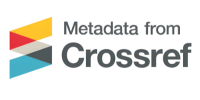HR Analytics and Financial Forecasting: Building Data-Driven Workforce Budgets
DOI:
https://doi.org/10.25215/31075037.055Keywords:
HR Analytics; Financial Forecasting; Workforce Budgeting; Predictive Modeling; Human Capital Management; Data-Driven Decision Making; Workforce Planning; Budget Optimization; People Analytics; Organizational PerformanceAbstract
In the environment that continuously pushes organisations to optimix their resources and financial viability, HR analytical service will fit in to the short term strategy outcome forecasting. The paper examines the role of HR analytics in building data-driven workforce budgets which combine talent management and organisational-financial objectives. Traditional budgeting is a fixed cost of the workforce and fails to provide the dynamic impact of employee performance, staff turnover, recruitment effort or skill contribution on long-term financial performance. The HR analytics is currently able to provide a more reliable and adaptable base on which financial planning can be based by utilizing predictive models and personnel measures, including attrition trends, productivity measures and pay scales.
The article explores methods of combining descriptive, predictive and prescriptive analytics so as to transform workforce information into actionable financial intelligence. In it, there are case-based scenarios where demand planning, scenario modeling and headcount optimization technology of the HR are integrated into the budgeting process to allow more cost allocation and reward of human capital. Besides this, the research examines the benefits of having the HR and the finance personnel in close collaboration to generate transparent and fact-based budgets that suit the requirements of organisational agility and employee engagement.
The knowledge, and provide an active market change and human capital challenges are being connected to the around HR analytics and financial forecasting, which will equally provide a better planning, but offer. Closing the divide between individuals-data and financial strategy would allow organizations to achieve a sustainable compromise between workforce planning and financial performance. The current work contributes to the growing body of research regarding data-based decision making and offers implications to the HR professionals, financial planners, and business executives who want to enhance the organizational resilience by planning the workforce budgets smarter.












